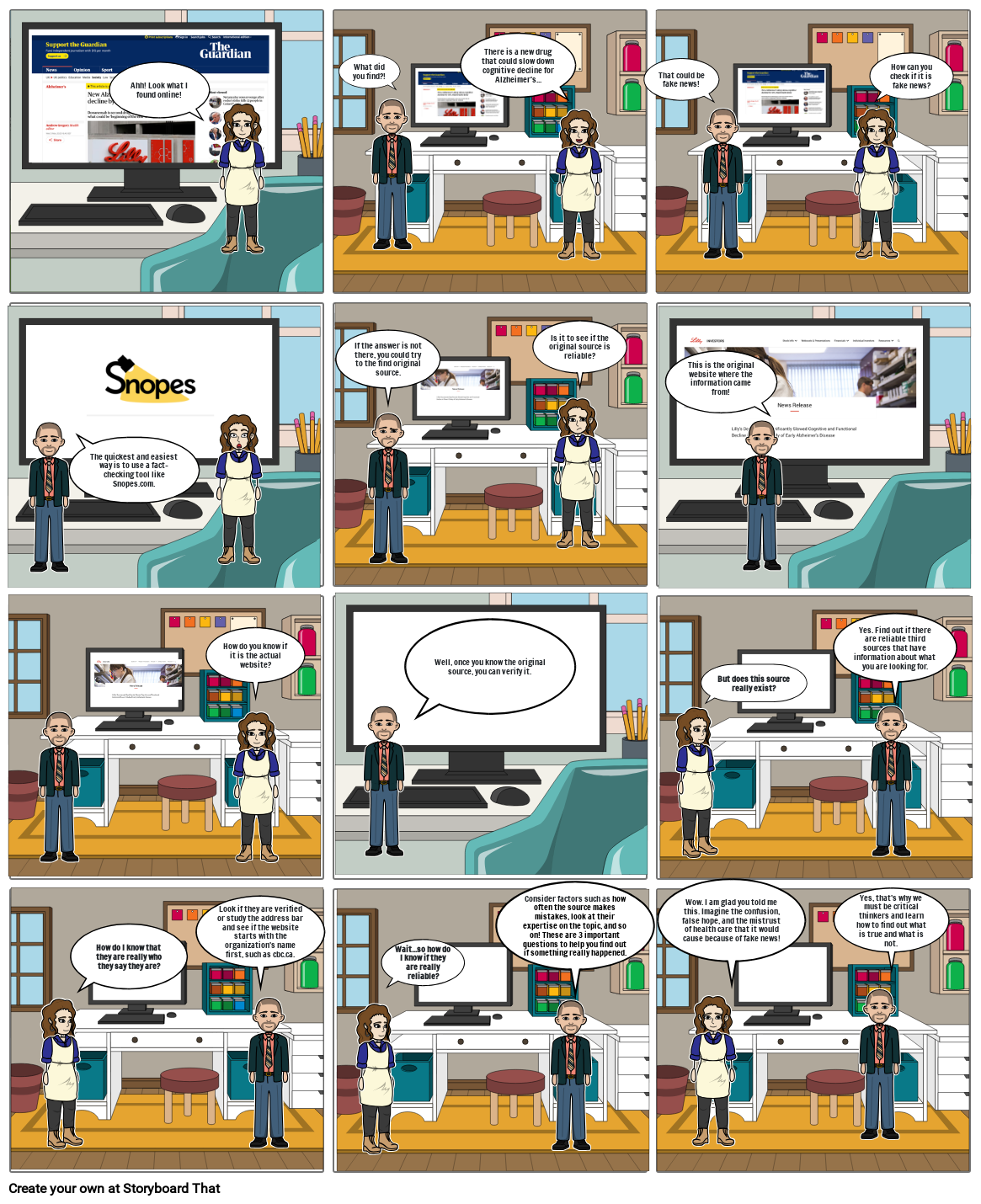Debunking Misinformation Online

Montāžas Teksta
- Slidkalniņš: 1
- Ahh! Look what I found online!
- Slidkalniņš: 2
- There is a new drug that could slow down cognitive decline for Alzheimer's...
- What did you find?!
- Slidkalniņš: 3
- That could be fake news!
- How can you check if it is fake news?
- Slidkalniņš: 4
- The quickest and easiest way is to use a fact-checking tool like Snopes.com.
- Slidkalniņš: 5
- Is it to see if the original source is reliable?
- If the answer is not there, you could try to the find original source.
- Slidkalniņš: 6
- This is the original website where the information came from!
- Slidkalniņš: 7
- How do you know if it is the actual website?
- Slidkalniņš: 8
- Well, once you know the original source, you can verify it.
- Slidkalniņš: 9
- Yes. Find out if there are reliable third sources that have information about what you are looking for.
- But does this source really exist?
- Slidkalniņš: 10
- Look if they are verified or study the address bar and see if the website starts with the organization's name first, such as cbc.ca.
- How do I know that they are really who they say they are?
- Slidkalniņš: 11
- Consider factors such as how often the source makes mistakes, look at their expertise on the topic, and so on! These are 3 important questions to help you find out if something really happened.
- Wait...so how do I know if they are really reliable?
- Slidkalniņš: 12
- Wow. I am glad you told me this. Imagine the confusion, false hope, and the mistrust of health care that it would cause because of fake news!
- Yes, that's why we must be critical thinkers and learn how to find out what is true and what is not.
Izveidoti vairāk nekā 30 miljoni stāstu shēmu

